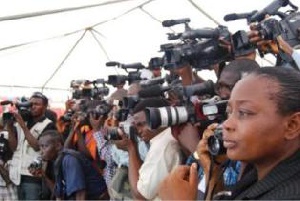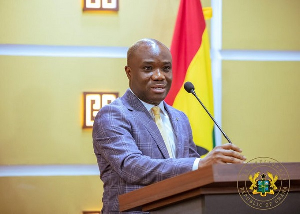Dr Christine Evans-Klock, the United Nations Resident Co-ordinator in Ghana, has lauded the country’s record of having a very active free press, impressive public access to information and the protection of fundamental freedoms.
She said there could be no accountability without information and that Goal 16 of the Sustainable Development Goals (SDGs) target was to ensure public access to information and protect fundamental freedoms in accordance with national legislation and international agreements.
“On this target, I think freedom of religion and respect for diversity across religious and traditional differences is an important asset to Ghana,” Dr Evans-Klock said on Thursday in Accra during the 2016 School of Social Sciences Conference of the University of Ghana (UG).
“These assets are incredibly important for governance in achieving the fundamental Sustainable Development Agenda’s objective of leaving no-one behind,” she said.
The two-day conference, on the theme: “The Social Sciences, Good Governance and Sustainable Development Goals” is under the auspices of the United Nations Development Programme (UNDP), Konrad Adenuer Stiftung, IFS Financial Services and the Office of Research and Innovation, UG.
The annual conference provides a platform for scientists to present and discuss research findings and to deliberate on issues of current national importance.
Dr Evans-Klock, who is also the UNDP Resident Representative in Ghana, said the MDGs focused on the poorest segments of society, whether in least developed, developing, or middle income countries.
However, Agenda 2030 of the SDGs went much further to outline a transformational agenda to leave no one behind by building on the success of the MDGs and completing unfinished business.
Dr Evans-Klock said one of the clearest findings from Ghana’s 2015 MDG Report was that even where national trends showed that MDGs were met or where impressive progress had been made, the success was not spread evenly across the country.
She said the report was candid in showing that the three northern regions had been left behind.
“We have been proud to celebrate Ghana’s success in having met the MDG to cut extreme poverty in half, that it did so significantly ahead of the 2015 target date, and that it had been the first country in Sub-Saharan Africa to meet this goal,” she said.
Dr Evans-Klock said Ghana also made substantial advancement in reducing HIV prevalence, increasing access to primary education for girls and boys equally, and reducing hunger.
She expressed appreciation on consultations for Ghana’s long-term 40-year development plan, in which linkages were drawn between the global and the national development agenda, and where the SDGs featured prominently.
She hailed President John Dramani Mahama on his appointment as co-chair of the Group of Eminent Advocates for the SDGs, along with the Prime Minister of Norway.
“This recognizes Ghana’s progress in the MDGs and Ghana’s contributions to the design stage of the SDGs.
“Through the role of the President of the country in this group, Ghana’s progress in the SDGs will continue to be given great visibility in the Region and globally. Ghana has an opportunity to lead progress in this global development agenda,” she said.
She said one of the other differences between the MDG era and the SDG now was that Ghana’s status had changed from a Low-Income Country to a lower Middle Income Country; which meant that Ghana was no longer eligible for much concessionary borrowing or official development aid.
“It is going to have to finance more of the investments needed to achieve the SDGs from its own resources,” she said.
Professor Charity Akotia, the Dean of the School of Social Sciences, UG, said good governance and sustainable development were inseparable and that an aggressive and sustained development agenda was necessary to transform society.
Prof Samuel Agyei-Mensah, the Provost, College of Humanities, UG, said he was very happy that the SDGs contained reproductive rights which were absent in the MDGs.
Mr Burkhardt Hellemenn of the Konrad Adenuer Stiftung said the Foundation was not only into good governance, but contributed to sustainable development.
Regional News of Saturday, 16 April 2016
Source: GNA

















